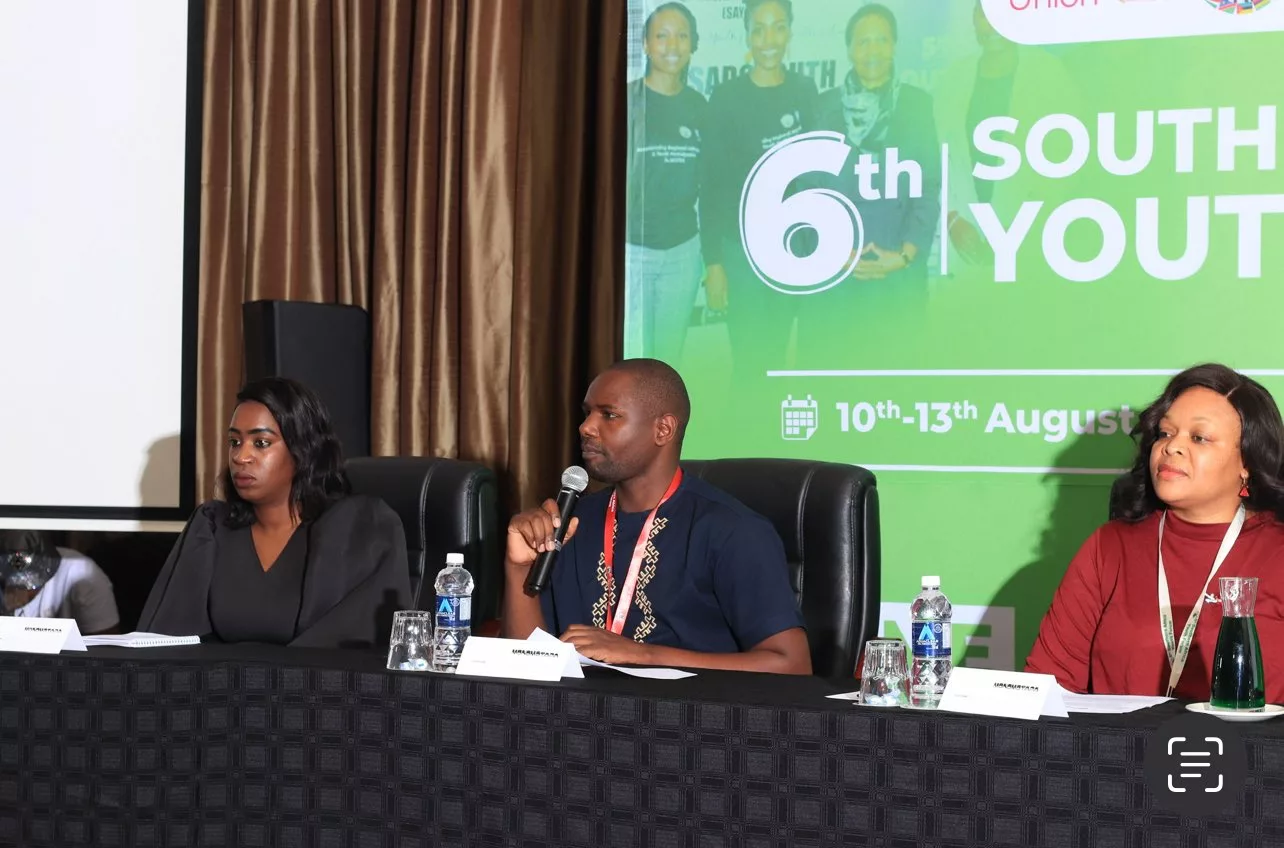The Zimbabwe Youth Council joined the rest of the world in celebrating the 2024 International Youth Day yesterday and urged young people to harness digital pathways for sustainable development.
Addressing delegates at the sixth Southern Africa Youth Forum (SAYoF) yesterday held under the theme “Empowering the Future: Innovative Education for Sustainable Development in Africa” running from the 10th-13th August 2024 in Harare, Sungano Chisina, the Operations Director of the Zimbabwe Youth Council urged young people to embrace technology for sustainable development.
“It is with great pleasure that the Zimbabwe Youth Council joins the rest of the world youth in celebrating 2024 International Youth Day today and on the same day the youth of Zimbabwe joins the nation to celebrate Heroes Day. We value the sacrifice made by our fathers and mothers in liberating the country as well as the support we got from the entire region.
“The theme of International Youth Day; “From Clicks to Progress: Youth Digital Pathways for Sustainable Development,” highlights the role of youth in harnessing digital pathways for sustainable development. As we navigate the complexities of the 21st century, our actions must be guided by innovation, creativity, inclusivity, and a commitment to creating a better world for the current and future generations using technology which is now part of our day-to-day life,” Chisina said.
The digital revolution has transformed the way people live, learn, and interact especially the youth. With just a few clicks, one can access vast amounts of information, connect with others across the globe, and leverage technology to drive positive change.
“But we must ask ourselves: are we utilizing these digital tools effectively to achieve sustainable development? And are we embracing the principle of not leaving anyone and no place behind? Think of our youth in the rural and marginalised communities, migrant youth as well as vulnerable groups.
“As young people, we have a unique opportunity to shape the future. We are digital natives, born into a world where technology is ubiquitous. We have the skills, creativity, and energy to drive progress. But we must also acknowledge the challenges that lie ahead,” the youthful leader said.
In Zimbabwe and beyond, many young people face barriers to accessing digital technologies, including limited internet penetration, lack of digital literacy, and unequal opportunities for skills development. These disparities threaten to exacerbate existing inequalities and hinder our collective progress.
As a panacea, Chisina said there is a need to acknowledge the strides made already by the African Union member states such as ratification of the African Youth Charter. Many countries including Zimbabwe now have National Youth Policy documents. Some have Youth Acts as pieces of legislation guiding the youth sector. Zimbabwe is in the process of developing a comprehensive National Youth Act which will help in ensuring effective coordination of the sector.
The Zimbabwe Youth Council acknowledges the progress made to date in coming up with a SADC Youth Protocol as member states met in Angola and adopted it on the 5th of July 2024.
“After its ascendance by the Heads of State on the 17th, we should then join hands in disseminating it. The Youth Desk and Secretariat to be established by the protocol should then prioritize digital inclusion. Governments, private sector partners, and civil society organizations must work together to expand internet access, develop digital literacy programs, and create opportunities for skills training.
“Secondly, Let’s harness the power of digital technologies to drive sustainable development. From e-learning platforms to digital entrepreneurship, we must explore innovative solutions that address pressing global challenges and empower young people to take ownership of their digital pathways. We must create spaces for youth-led initiatives, amplify their voices, and support their ideas. In conclusion, the journey from clicks to progress requires collective action, creativity, and a commitment to sustainable development. Let us embrace this challenge, harness the potential of digital technologies, and shape a brighter future for all,” he added.
Speaking to Spiked Online Media during the workshop, Sally Ncube, the Executive Director of the Women’s Democracy Network Zimbabwe urged young people to work with parliamentarians, policymakers, and CSOs to accelerate the lobby for domestication of youth policy set out in the African Youth Charter which has been ratified by most SADC Member States.
She alluded to Article 13, subsection 3(f) of the African Youth Charter which provides clearly that the education of young people shall be directed to the development of life skills, including digital skills, to function effectively in society.
“Article 13 of the African Youth Charter also provides that education should include respect for the environment and natural resources, which resonates with climate action and the need to promote a sustainable future for all, with no one left behind.
“While the African Youth Charter is but one of the many international instruments which can bolster youth education, it is necessary to ensure that legal provisions at the international or regional level are domesticated through a structured approach that involves active youth participation,” Ncube said.






